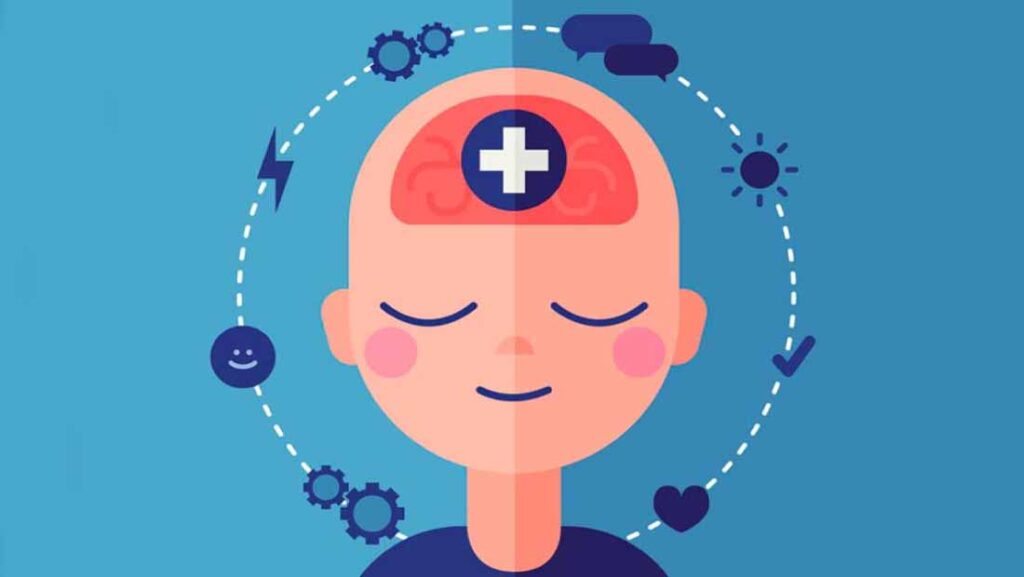Mental health (SM) is a very important issue that affects all people, regardless of age, gender or social status. Mental health refers to our emotional, psychological and social well-being. That is, how we think, feel and relate to others and the environment around us.
In this article, we will explore the importance of mental health in our daily lives, and how we can properly care for it to improve our quality of life.
What is Mental Health?
Mental health is a state of emotional, psychological and social well-being in which a person can cope with the challenges of daily life effectively. Mental health relates to a person’s ability to adapt to new situations, manage emotions, make informed decisions, and maintain healthy interpersonal relationships.
Why is mental health important?
Mental health is important because it directly affects our quality of life. Good mental health can help us:
Increase our self-esteem and self-confidence
Improve our ability to make informed decisions
Maintain healthy interpersonal relationships
Increase our resilience in difficult situations
Improve our work or academic performance
On the other hand, poor mental health can cause:
Depression
Anxiety
Stress
Insomnia
Problems in interpersonal relationships
Low self-esteem
How can we take care of our SM?
There are many ways we can take care of our mental health. Some of them are:
Practice self-discipline: Self-discipline allows us to maintain healthy habits and avoid harmful habits. For example, regular exercise, a healthy diet and moderate alcohol consumption can improve our mental health.
Learn to relax: Relaxation is essential to reduce stress and anxiety. There are different relaxation techniques, such as meditation, deep breathing or yoga, that can help us relax and reduce stress.
Foster healthy interpersonal relationships: Healthy interpersonal relationships are critical to our mental health. It is important to cultivate positive interpersonal relationships, where respect, trust and empathy are fostered.
Ask for help when needed: It’s important to recognize when we need help and ask for it when needed. If we are facing emotional or psychological problems, seeking professional help can be critical to overcoming them.
Rest properly: Sleep is essential for our mental health. Getting enough sleep and having a regular sleep schedule can improve our concentration, productivity, and mood.
How can we identify if we are having SM problems?
It is important to know how to identify the signs and symptoms that may indicate MS problems. Some of them are:
Changes in mood, such as sadness, irritability, apathy, or anxiety.
Trouble sleeping or sleeping too much.
Loss of interest in activities we used to enjoy.
Difficulty concentrating or making decisions.
Changes in eating habits, such as eating too much or too little.
Feelings of guilt or worthlessness.
Suicidal thoughts or attempts.
Trouble controlling emotions.
If you experience any of these symptoms for an extended period of time, it’s important to seek professional help.
Where can we seek help to take care of our MS?
There are different options to seek professional help in relation to our SM. Some of them are:
Consult with a psychologist or psychiatrist: An MS professional can help you identify and treat emotional or psychological problems. You can search for recommendations from friends or family or search online professional directories.
Go to support groups: Support groups are spaces where people can share their experiences and receive support from people who are going through similar situations.
Use mobile applications: There are mobile applications that can help you meditate, track your emotions or connect with SM professionals.
Conclusion
MS is a fundamental aspect of our daily lives that directly affects our quality of life. It is important to take care of it properly to prevent emotional or psychological problems and improve our resilience in difficult situations. There are different ways to care for our MS, such as practicing self-discipline, learning to relax, fostering healthy interpersonal relationships, asking for help when needed, and getting adequate rest. If you experience prolonged symptoms of MS problems, it’s important to seek professional help to treat them properly.


